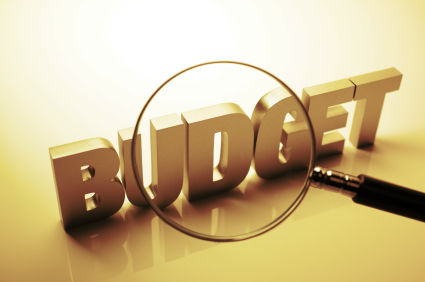So after speaking to my friend about buying a house I decided that one of the next steps I should take after becoming debt free was to look towards purchasing a home.
To this end I have started the House Down Payment Fund in ING and it is being funded concurrently with my other funds. The other sub accounts that I have in ING are as follows
- Emergency Fund
- Never Go Back To Fresno Fund
- Car Fund
Emergency Fund
This fund takes care of life’s little (or big) emergencies so that I am not strapped for cash and I do not have to put items on my credit card that I am not sure that I can afford. This can take the form of anything from my windshield breaking to an unexpected medical bill that I was not prepared for. Having an emergency fund means that I can hopefully take care of things without the need to break the budget in one month because I have the money available in a savings account. Common advice is to have 3 to 6 months of living expenses in your fund and I currently have two months worth so I still have some work to do.
Never Go Back To Fresno Fund
This fund is basically my F U Fund for life. It is being built up to ensure that I don’t have to go back to where I came from because that was not a very happy place for me. It is sort of an extended emergency fund but it will be used for daily living if I am out of a job. This fund will need to have a considerable number of months of living expenses saved up. I am slowly adding to this fund every month and once I have three months of expenses in the emergency fund I will add a little more to my Never Go Back to Fresno Fund.
Car Fund
This fund was started as a joke when I fell in love with a Lexus while still paying a car loan on my current vehicle. I managed to pay off the car in full and decided to keep ‘paying’ the loan amount into an account in order to save up for my next vehicle, regardless of what it was.
I am a long way from getting a house right now especially since I do not know where my next job will be. I have still decided that I can cut a little bit from my spending budget and put it into my saving budget and call it my House fund for now. At least seeing that there is a growing account will provide the motivation that I need to put more money into it in the future when I actually have more income.
I am tweaking the budget once again in order to reflect this change and will begin saving for my new home in May 2011 via small, automatic transfers in ING to a sub account.
How did you start saving for your house?




I was dumb and borrowed half the money for the down payment from my retirement.
Don’t EVER, EVER do that!
Emily I would have to disagree. Using retirement money for house downpayment isn’t such a bad idea, unless you plan on retiring soon. You are investing in an asset that you would later be able to sell to recover that retirement money. Here in Canada, the government actually encourages us to put our retirement savings towards a first home purchase. They give extra tax rebates when you do this.
Lulu, perhaps it is worth talking to a financial expert to see if that ING account is really the best way to save for a house downpayment. Maybe you’d get better return on your money in the long run by investing that money elsewhere.
Well I just started it and I am only putting $30 a month since that is all I could tweak in the budget right now. So for now I will just leave that money earmarked in ING, even though I know it is not the highest interest rate out there.
I think saving to buy a home would be a very smart investment after becoming debt free. Good luck to you!
Oh, it is really nice to start a house down payment fund. $30 a month is not a lot but slowly it will build up!
If I could do it over again I would make sure my down payment is at least 20 percent. I went the route of no money down and now I have no equity whatsoever and now I’m underwater!
Wow I am really sorry to hear about that and hopefully things will take a turn for the better in the future.
On the other hand, if you had put down more you would have lost that too. The only thing that might have helped is that some equity might allow you to refinance to a better rate.
I know you are planning for the future, however a home is a very risky investment. In the current market I would only buy a house under very specific circumstances.
At least double the mortgage amount to include maintenance, taxes, and insurance. Also, you have to pay all of the utilites and electricity is much higher for a house. You have to pay to have appliances repaired, annual maintenance for hvac, and have plumbing fixed. Basic things you will probably need include lawn mower, snow blower, gardening tools, regular tools, shovel, rake, and a ladder.
It may look like a buying opportunity, and it is for the wealthy. Typically you could sell a home if you needed to fairly quickly — this isn’t the case now.
I am aware of the costs and I still intend to continue saving up for it. This is a goal I have and right now it is a very distant goal but it is still something to do while I am maintaining my debt free status. We all need something to look forward to right?
Keeping and saving $100 a month should do you good. It is a wise move though to think that you want to buy a house after being debt free. A house is a very good investment.